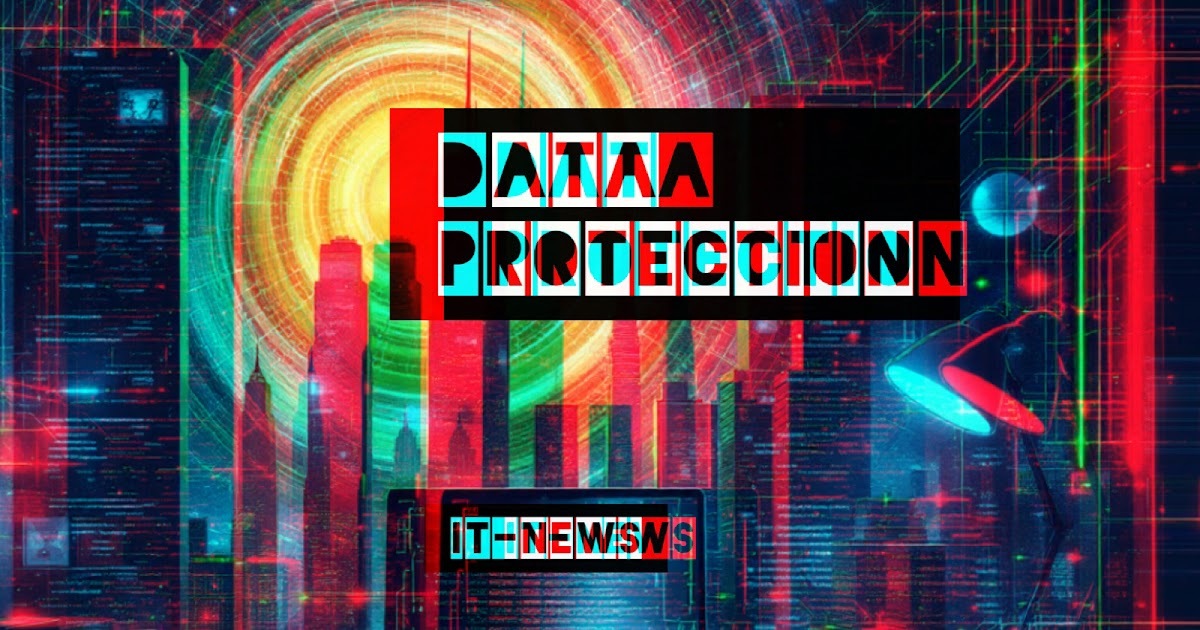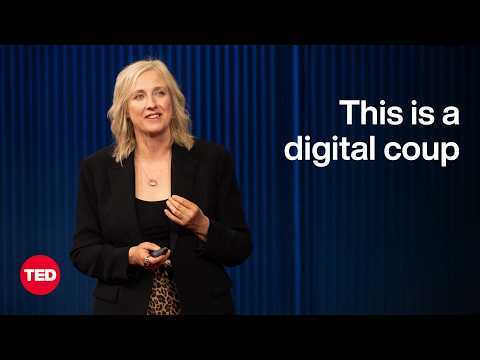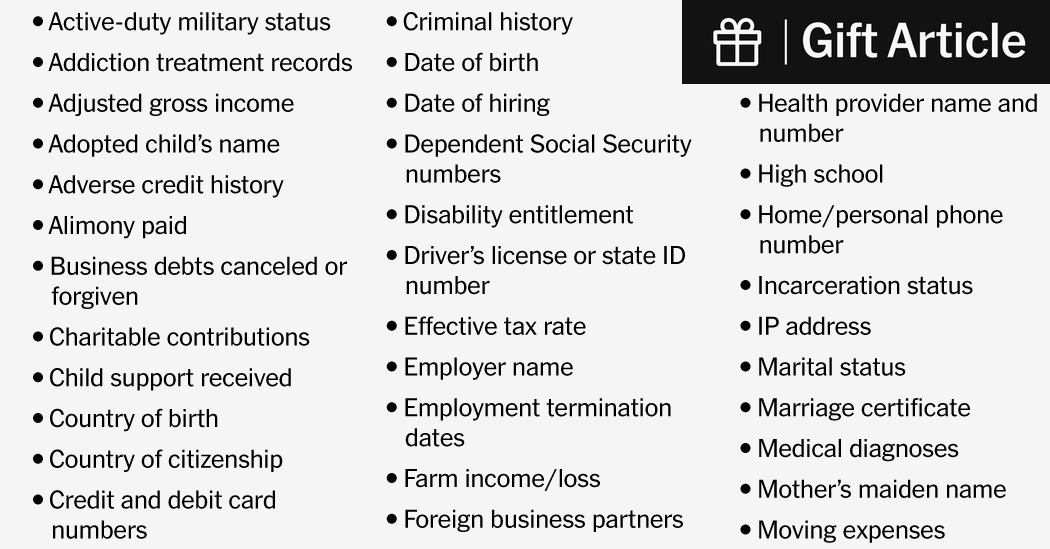Cybernews research
A high-severity data leak has exposed travelers between Ukraine and Moldova.
#dataleak #datasecurity #cybersecurity #Ukraine #Moldova
https://cnews.link/ukraine-moldova-border-crossings-severe-data-security-incident-3/
Cybernews research
A high-severity data leak has exposed travelers between Ukraine and Moldova.
#dataleak #datasecurity #cybersecurity #Ukraine #Moldova
https://cnews.link/ukraine-moldova-border-crossings-severe-data-security-incident-3/
Please Note: Creating an #APAAR ID is voluntary, and no educational institute can force you to do so.
If you wish to #optout of #APAAR ID registration, you can use the letter template prepared by the @sflcin and submit it to your educational institution.
Read more about the #APAAR and find the opt out template here: http://sflc.in/apaar-id-one-nation-one-student-id-what-about-privacy/
This is been a common trend across many companies. Government sponsored data breaches are a major threat.
Let’s Talk About Data Security – Backups
As collections professionals we are trained to think about security. We constantly make sure that nothing gets damaged and lost, may it be in our own storage or while on loan, perhaps traveling from continent to continent for a new exhibition. But when it comes to data security we often rely on our IT departments and database managers. In a changing world we need to add data security to our registrar’s toolkit because if we don’t care about it, perhaps no one will be left to care about it. So, I am planning on writing a series of short articles on that topic.
Now, I am not an IT expert by any means. I am basically pulling together what I have learned over the years, drawing from resources I have at hand, ready to stand corrected and update you if something I wrote could be done better, easier, and/or more secure. I am thinking in this day and age, any guidance and ideas on how to safeguard our intellectual heritage is better than doing nothing at all. Feel free to contribute with your own sources and ideas.
I am starting with what I feel most comfortable writing about: Backups.
How often should I back up my database?
This is a risk analysis: How serious will losing all your data since you backed up the last time be? In some cases, once a week can be sufficient if you are the only person who works with it, you have all your changes tracked in another medium (for example written notes on paper), and you don’t enter more than just a few records a day. But if multiple people enter and change data during the day? Well, once a day seems highly recommendable, then.
What is the difference between full backup and differential backup?
A full backup stores ALL data of your database. A differential backup only records the changes to the last time you did a full backup. Which one to use when is about analyzing the risks associated with it. A database can get compromised without you noticing right away. In this case it is good if you can revert back to a full backup of an earlier stage, before it became corrupted and then try to extract the data that was added at a later stage from the other backups.
What backup method should I choose and how many backups shall I retain?
There are no hard rules and usually it is best to talk to experienced users of the same collections management system and to the vendor about what makes sense in your use case.
My rule of thumb: If I know I am entering more than ten records each day and do a lot of updating of other records, I will go with a differential backup every day and a full backup once a week. I will keep the backup of the last five days and a full backup from each of the previous four weeks.
But this is tailored for the case where only I enter data and nobody else. If you have a lot of people entering data there are more options of something going wrong, therefore you will want to do backups more often. This is of course also a question of how much storage space you can afford, but then again, you have to factor in the costs of losing data and the hours it takes to re-enter it. Do a proper risk analysis for your institution, then set up a fitting backup routine.
Where shall I store my backup?
Storing your database backup on the same computer you took it is as good as having not stored it at all! When your computer is destroyed either physically pr by a virus, you will have lost both your original database AND your backup.
Best practice is to have three instances of your data:
A cloud storage might be a good idea for the latter. In this day and age, maybe even a cloud storage outside of your own country. That way, if you are forced to delete data from your database (if this sounds like a far-fetched idea, let me remind you of this https://www.theguardian.com/us-news/2025/mar/07/military-images-trump-dei) your data will still be somewhere safe and unchanged.
You can also use an external hard drive that you store somewhere safe, preferably outside of the town or city your original database is situated because if there is a catastrophe in this area, your data might still be safe somewhere else. It has the advantage that you pretty much can control where your data goes and that it can’t be hacked, but the disadvantage is that if something happens to that hard drive, the data is lost.
In comparison, a cloud usually has its own backup routines that make sure that your data is safe. Ask the provider about it. Also ask them about their security measures and what data they share with third parties. Only you should have access to your data, nobody else.
Heads up: Make sure your data is actually backed up!
Just because you have taken a backup doesn’t necessarily mean you have a working backup. Once you have created a backup file, try if you can restore it. Caution: Restore it to a separate space, don’t use it to restore your actual database because you risk damaging a working database with a corrupted backup. Check this regularly and don’t assume that just because you can see a backup file on your drive your data is actually fine.
Final thoughts on when to delete backups
As said before, it is good to retain some backups because not all problems are discovered right away and it might take weeks to discover them. This is about keeping your current data safe and retrievable.
But you also might want to preserve the state of your current research. In the future, you might want to come back and compare how facts were recorded in 2024 and how that changed going forward. Your past records may become sources for future scientists and historians. So, it might be a good idea to take a backup NOW and keep that backup in a safe space for the future.
Next up I will be showing you how to take a backup if you are using TMS or TMS Collections. The way it is done in your software might be different, but perhaps it is a bit similar.
Take a backup now and take care!
Angela
Synology's 2025 NAS Strategy: A Shift Towards Proprietary Hard Drives
In a bold move, Synology plans to restrict advanced features of its Plus NAS devices to only certified hard drives starting in 2025. This strategy aims to enhance security and support but raises conce...
https://news.lavx.hu/article/synology-s-2025-nas-strategy-a-shift-towards-proprietary-hard-drives
DPP Law, a firm in the United Kingdom, didn't think a data theft was worth reporting to the authorities.
Ameriprise Financial, a Fortune 500 company, notified thousands of customers that an ex-employee's error exposed their personal details.
#privacy #cybersecurity #databreach #datasecurity #dataprivacy
https://cnews.link/ameriprise-financial-advisor-data-breach-clients-1/
Who has worked with @numerique_gouv #Docs or @cryptpad Documents?
For easy, low-threshold inter-institutional co-authorship (parameters are usability for authors used to #GoogleDocs as much as #datasecurity):
Achtung, eBay-Nutzer! Eure Daten im KI-Fokus – So schützt ihr eure Privatsphäre!
eBay setzt verstärkt auf KI und nutzt Nutzerdaten für personalisierte Angebote und Betrugserkennung. Erfahrt, wie ihr der Datennutzung widersprechen könnt! #eBay #KI #Datenschutz #Privatsphäre #unplugbigtech #bigtech #unplugusa #leavebigtech #datasecurity #news #BreakingNews #nachrichten #internet #itsecurity
https://dndnetz.blogspot.com/2025/04/achtung-ebay-nutzer-eure-daten-im-ki.html

Cybernews research
Over two million files packed with personal data are still sitting online, waiting to ruin someone's day.
#cybersecurity #datasecurity #dataprivacy #MTV
https://cnews.link/loop-leaks-personal-data-creatives-exposed-3/
Hackers just hit a company that manages the digital infrastructure of infusion centers across the US, exposing Social Security numbers.
#hack #cybersecurity #US #datasecurity
https://cnews.link/infusion-center-software-breach-exposes-patient-data-1/
A massive cyberattack on a Midwestern ambulance company may have exposed everything from medical records to passport numbers for over 100,000 patients.
#cybersecurity #databreach #dataprivacy #datasecurity
https://cnews.link/medex-ambulance-data-breach-patient-details-compromised-1/
Meta nutzt EU-Nutzerdaten für KI-Entwicklung!
Meta verwendet ab sofort öffentliche Daten von EU-Nutzern auf Facebook und Instagram zur Verbesserung seiner KI-Modelle. Nutzer können über ein Formular widersprechen.
Widerspruch Link im Beitrag
#KI #Datenschutz #Meta #Facebook #Instagram #EU #news #ai #datasecurity #leavemeta #leavebigtech #unplugbigtech #widerspruch #bigtech
https://dndnetz.blogspot.com/2025/04/meta-setzt-eu-nutzerdaten-fur-ki.html

Hertz Corporation is notifying customers and authorities of a data breach that exposed customers' sensitive data.
#databreach #Hertz #cybersecurity #datasecurity #dataprivacy
https://cnews.link/hertz-breach-affect-thousands-clop-steals-drivers-licenses-3/
Explore strategies to ensure privacy while integrating AI across every layer—frameworks, best practices, and compliance insights with Wang Jianmin at #FOSSASIASummit2025
Click here https://youtu.be/QJYHbRHuk1g to watch on the FOSSASIA YouTube channel:
If only there were some example of how well government back doors work for security technology...
"The Clipper chip was a chipset that was developed and promoted by the United States National Security Agency (NSA) as an encryption device that secured 'voice and data messages' with a built-in backdoor that was intended to 'allow Federal, State, and local law enforcement officials the ability to decode intercepted voice and data transmissions.' It was intended to be adopted by telecommunications companies for voice transmission. Introduced in 1993, it was entirely defunct by 1996."
https://www.youtube.com/watch?v=TZOoT8AbkNE
"We are watching the collapse of the international order in real time, and this is just the start."
"This is Putin's playbook."
A powerful speech, definitely worth watching.
#datasecurity
#privacy
#surveillance
#disinformation
#broligarchy
#bigtech
#humanrights

https://www.youtube.com/watch?v=TZOoT8AbkNE
"We are watching the collapse of the international order in real time, and this is just the start."
"This is Putin's playbook."
A powerful speech, definitely worth watching.
#datasecurity
#privacy
#surveillance
#disinformation
#broligarchy
#bigtech
#humanrights

Trump Wants to Merge Government Data. Here Are 314 Things It Might Know About You.
Elon Musk’s team is leading an effort to link government databases, to the alarm of privacy and security experts.
https://www.nytimes.com/2025/04/09/us/politics/trump-musk-data-access.html

Well then, let me give a tip of the hat to another splendid European app @Tutanota The team behind this one is doing a bang-up job, and they deserve a pat on the back. I've personally given their email app a whirl, and they've got a calendar app too. It's the perfect blend of usability, privacy, and security, all without costing an arm and a leg. Absolutely top-notch, and I wholeheartedly recommend giving it a go.
#europeanalternatives #emailapp #privacyprotection #datasecurity #privacyandsecurity #tutanota #tutamail